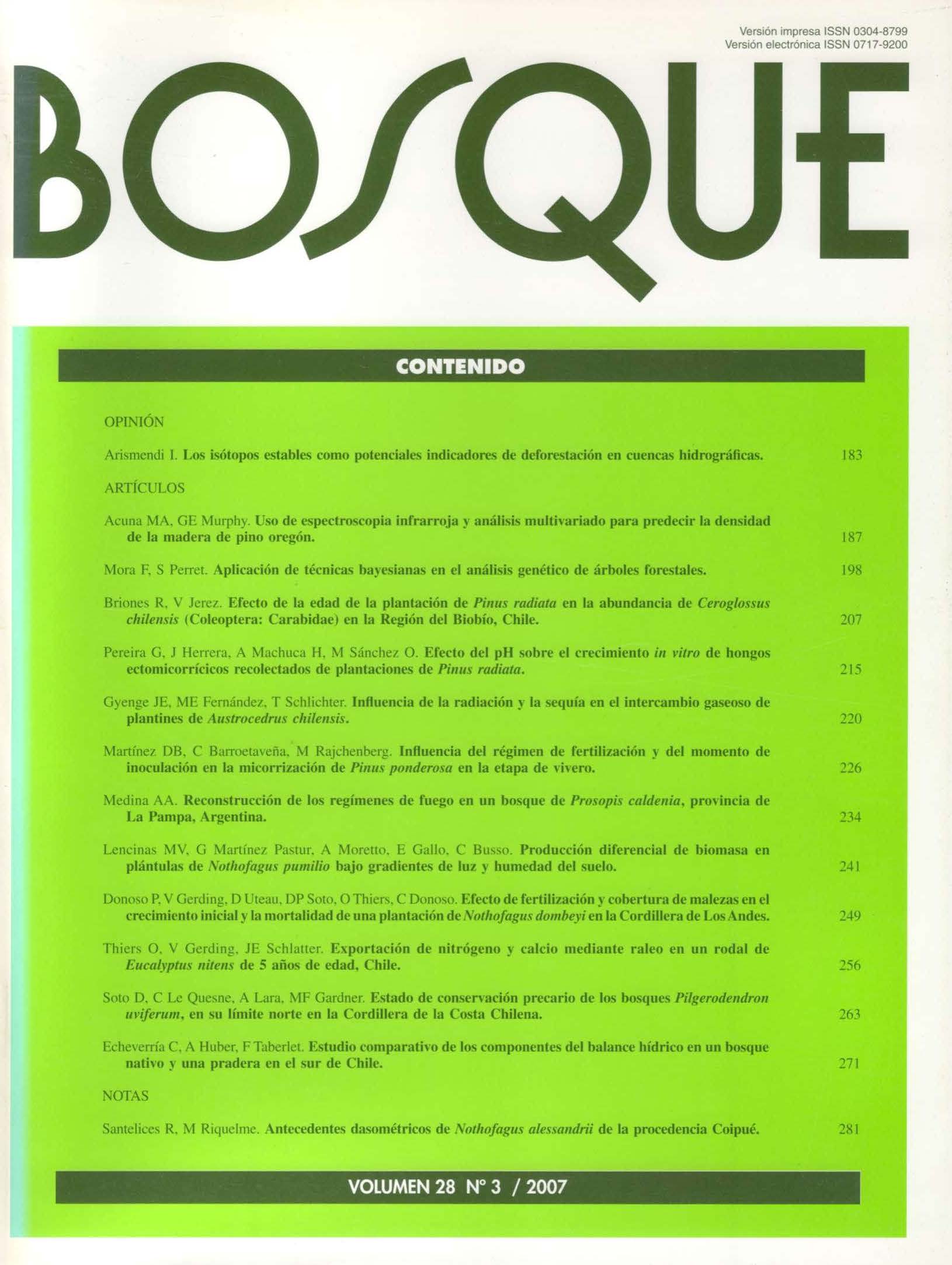Uso de espectroscopia infrarroja y análisis multivariado para predecir la densidad de la madera de pino oregón
Contenido principal del artículo
Resumen
En muchas partes del mundo los mercados de productos forestales están enfrentando escenarios cada vez más competitivos y complejos. Al momento de comprar madera, las compañías están considerando propiedades tales como rigidez, densidad, grano en espiral y contenido de extractivos. La evaluación de estas propiedades en tiempo real será un verdadero desafío para los productores de madera en rollizos. Este artículo examina la utilidad de la tecnología infrarroja (NIR) para predecir la densidad de la madera en rollizos de pino oregón (Pseudotsuga menziesii). Las rodelas de madera fueron colectadas desde 17 sitios localizados en el Estado de Oregon, EE.UU. Para obtener las muestras de astillas, cada rodela fue aserrada con una motosierra, similar a aquélla usada por cosechadoras mecánicas. Posteriormente se obtuvo información del espectro infrarrojo de las muestras de astillas. Se utilizó análisis multivariado para correlacionar las propiedades de la madera con el espectro NIR. Los resultados preliminares muestran que NIR podría ser utilizado para predecir la densidad de la madera. El coeficiente de determinación fluctuó entre 0,80 y 0,96 para los modelos de calibración, y entre 0,56 y 0,85 para los modelos de validación. Estos resultados indican que la tecnología NIR podría ser usada en cosechadoras mecanizadas para la segregación de rollizos en base a la densidad de la madera.

